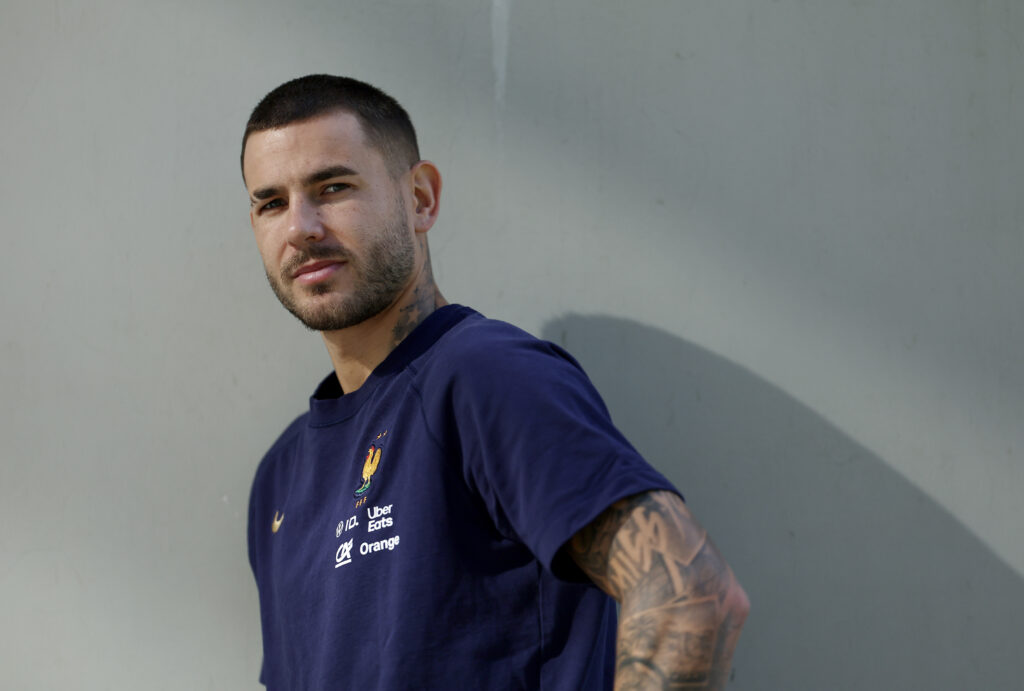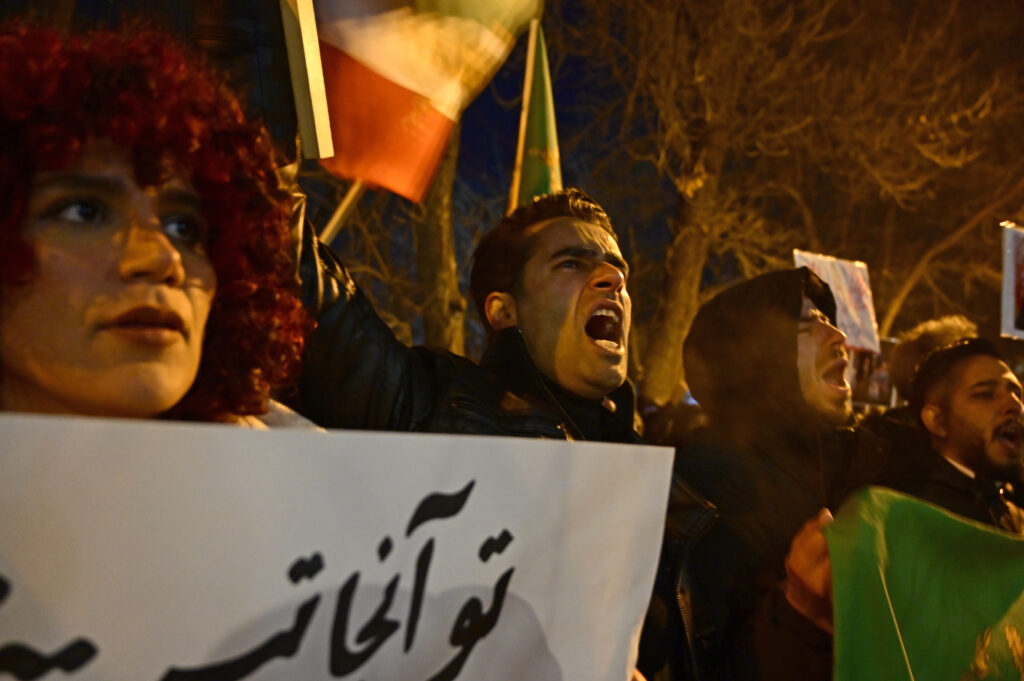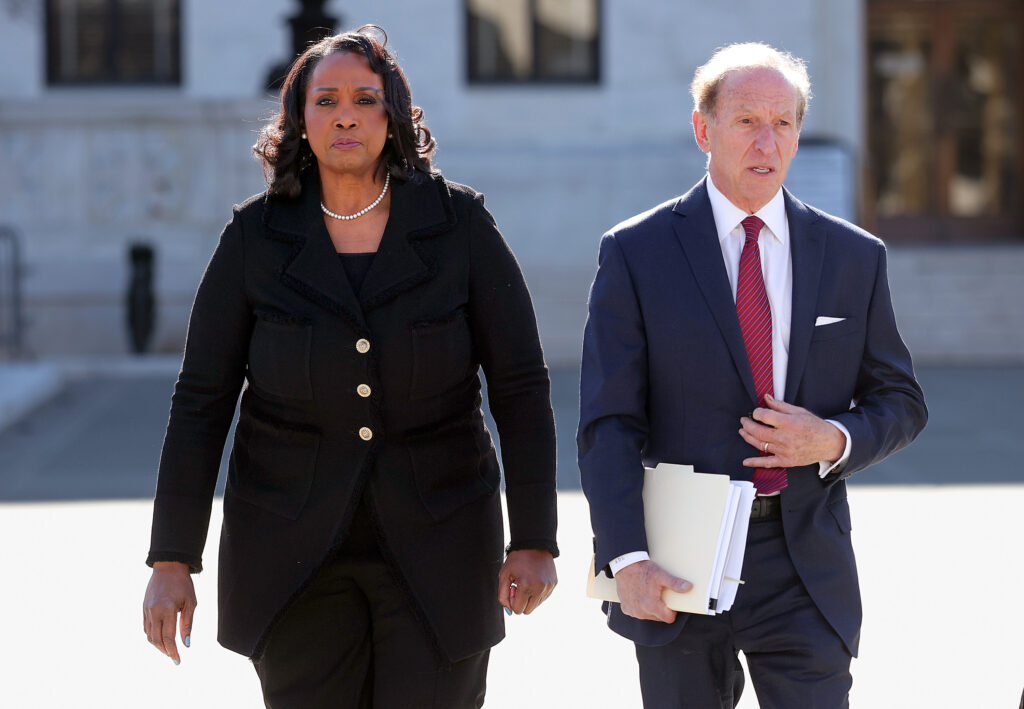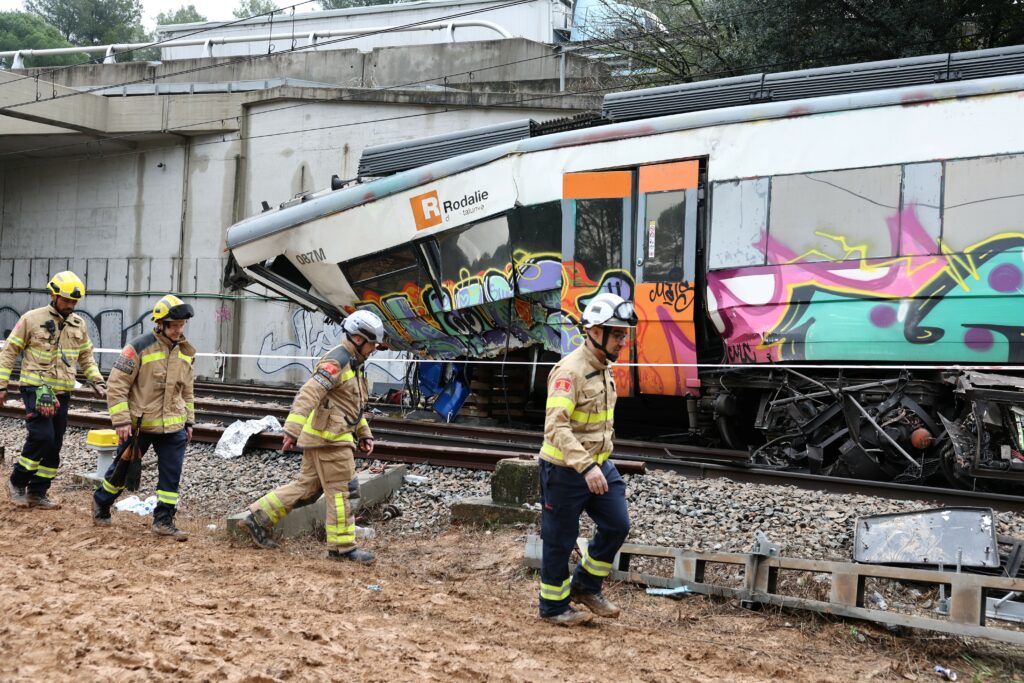Foot: le joueur du PSG Lucas Hernandez accusé par d’ex-employés colombiens de traite d’êtres humains
La justice enquête sur des accusations de traite d’être humains et de travail dissimulé après une plainte d’une famille colombienne visant le joueur du PSG Lucas Hernandez, des faits que l’international français et son épouse contestent.Ce père, cette mère et leur trois enfants “se sont retrouvés à travailler pour un an dans cette famille, sans droits”, a détaillé à l’AFP Me Lola Dubois, qui les défend. Dans un communiqué à l’AFP, le champion du monde français 2018 et son épouse, Victoria Triay, affirment de leur côté avoir été “manipulés” et n’avoir “jamais agi avec une intention malveillante ni dans le mépris de la loi”.”Ces personnes ont partagé notre vie avec respect et dignité”, indiquent-ils encore, qualifiant les faits d'”épreuve profondément douloureuse”.L’international de 29 ans et son épouse, qui évoquent une “confiance trahie”, assurent au sujet des membres de cette famille les avoir “aidés, soutenus et crus” lorsqu’ils “nous ont assuré être en cours de régularisation de leur situation”.L’enquête, ouverte après le dépôt mi-janvier d’une plainte révélée par Paris Match, a été confiée à la brigade de recherches de Saint-Germain-en-Laye. Selon Me Lola Dubois, les plaignants travaillaient “entre 70 et 80 heures par semaine, sans congés payés, sans vacances, sans documents qui viendraient établir le droit des salariés”, pour un salaire d’environ 2.000 euros payé en espèces.Ces conditions de travail, malgré des “avantages en nature” liés à la vie du joueur, combinées à la “vulnérabilité économique” de la famille, font que leur situation “s’apparente à une forme d’esclavage moderne”, a encore estimé l’avocate. – “Eldorado” -“On est sur une famille de Colombiens qui viennent en France, on leur promet l’eldorado, de travailler au nom et pour le compte de professionnels du football”, résume Me Lola Dubois.Elle indique que des contrats de travail ont bien été établis “un an après la prise de poste” mais estime qu’ils l’ont été “pour donner l’impression d’une situation régulière”. Contacté par l’AFP, le PSG n’avait pas réagi dans l’immédiat.”Cette affaire est désormais traitée par les voies juridiques appropriées, là où les faits (…) ont leur place”, affirment de leur côté le joueur et son épouse, appelant “à la décence, à la retenue et au respect”.Le défenseur du PSG avait précédemment été condamné en 2019 en Espagne à six mois de prison pour non-respect d’une mesure d’éloignement après des violences conjugales. L’affaire remonte initialement au 3 février 2017: celui qui n’était pas encore champion du monde avec les Bleus, alors âgé de 21 ans, et sa compagne d’alors, Amelia Lorente, en étaient venus aux mains devant leur domicile de Madrid.- Blessures -Sportivement, l’histoire du défenseur avec le club de la capitale n’a pas vraiment décollé depuis son arrivée à l’été 2023 en provenance du Bayern Munich.Gravement blessé pour la deuxième fois de sa carrière en demi-finale de Ligue des champions avant l’été 2024, il est revenu sur la pointe des pieds au tout début de 2025, pour combler les trous. Ses 29 apparitions jusqu’à l’été dernier, souvent en entrant sur le terrain en cours de jeu, n’avaient pas marqué les esprits, mais il a réalisé un début d’exercice 2025-26 assez prometteur malgré deux gestes d’humeur dont un en Ligue des champions. Geste qui lui a valu un suspension de trois matches par l’UEFA.Depuis l’été dernier, il est rappelé régulièrement en équipe de France par Didier Deschamps, qui pourrait le convoquer à la prochaine Coupe du monde l’été prochain. Comme au PSG, le joueur aux 40 sélections a un statut de remplaçant au poste de latéral gauche mais aussi dans l’axe.
Iran says 3,117 killed in protests, activists fear ‘far higher’ toll
Iranian authorities on Wednesday said 3,117 people were killed during protests that first erupted in late December, but activists said the actual toll risked being many times higher due to a crackdown that suppressed the demonstrations.Demonstrations and strikes initially sparked by economic grievances turned into a mass movement against the clerical leadership that has ruled Iran since the 1979 revolution, with people pouring into the streets in mass protests for several days from January 8.However the protests appear for now to have petered out in the face of what activists describe as a crackdown under the cover of a blanket internet shutdown.The clerical authorities have condemned the protest wave as a “terrorist” incident characterised by violent “riots” fuelled by the United States. Rights groups however say thousands of protesters demanding change were killed by direct fire from the security forces.In the first official toll from the authorities, a statement by Iran’s foundation for veterans and martyrs, cited by state television, said a total of 3,117 people were killed during protests.Of these, 2,427 people in that toll including members of the security forces were considered under Islam to be “martyrs”, with the statement calling them “innocent” victims.”The 690 people who are not among the martyrs are terrorists, rioters, and those who attacked military sites,” Ali Akbar Pourjamshidian, secretary of Iran’s National Security Council, told state TV.He said the high number of “martyrs” showed the “restraint and tolerance of the security forces” during protests.But Mahmood Amiry-Moghaddam, director of Norway-based Iran Human Rights (IHR) NGO, said “all available evidence emerging from Iran indicates that the real number of people killed during the protests is far higher.” “The Islamic republic has a well-documented pattern of systematic underreporting of lethal state violence,” he told AFP, warning that if the same pattern of Iran’s underreporting of executions is applied here “the actual number of people killed could be in the range of 25,000”.He said while the authorities attempt to “deflect responsibility… the evidence we have consistently points to state responsibility — protesters were shot by security forces and their proxies, using live ammunition, including heavy machine guns”.- ‘World is watching’ -All organisations monitoring the toll have said that efforts to give a precise figure are being severely impeded by the ongoing Internet blackout imposed by authorities in the Islamic republic, which according to monitor Netblocks has now lasted over 300 hours.The statement by the foundation for veterans and martyrs, quoted by state television, said “many of the martyrs were bystanders” shot dead during the protests.It also claimed that “some were protesters who were shot by organised terrorist elements in the crowd”, without providing evidence or details.Rights groups, including Amnesty International, have accused security forces of deliberately targeting protesters from rooftops and also seeking to shoot protesters in the eyes.Rights group Hengaw, also based in Norway, said it had verified the killing of eight more women by security forces in the protests and said it could now confirm a total of 42 women had been killed.The veterans and martyrs foundation condemned the “treacherous hand of Iran’s enemies”, accusing the “criminal leaders” of the United States of “supporting, equipping and arming” those who carried out the violence.- ‘No turning back’ -In a bid to show the damage caused by the protests, Tehran municipality on Wednesday showed journalists on an escorted official tour roughly a dozen charred buses lined up in the parking lot of a bus depot in the capital. A key protagonist in the protest movement was Reza Pahlavi, the son of the ousted shah. The US-based Pahlavi called for nightly protests and said he was ready to return to Iran.In a rare interview, his mother, the former empress Farah Pahlavi told AFP from her home in Paris in written answers to questions there was “no turning back” after the wave of protests.US President Donald Trump has never ruled out military action over the crackdown, although expectations of a swift American response have now receded.Iranian General Abolfazl Shekarchi, the spokesman of the Iranian armed forces, warned Trump that Tehran would attack him if supreme leader Ayatollah Ali Khamenei was targeted. In a News Nation interview that aired Tuesday, Trump responded: “I have very firm instructions. Anything happens, they’re going to wipe them off the face of this earth.”
US Supreme Court skeptical of Trump bid to fire Fed governor
The US Supreme Court appeared skeptical Wednesday of President Donald Trump’s effort to fire a Federal Reserve governor, in a case testing the central bank’s independence.Trump sought in August to dismiss Fed governor Lisa Cook, a key official on the bank’s interest rate-setting committee, accusing her of mortgage fraud. She denies the allegations.The conservative-dominated Supreme Court barred the Republican president in October from immediately removing Cook, allowing her to stay on the job until it could hear the case contesting her dismissal.During two hours of oral arguments Wednesday, a majority of the nine justices on the top court — both conservatives and liberals — expressed doubts that the president had shown sufficient cause to remove Cook or had provided her with appropriate due process.Justice Brett Kavanaugh, a Trump appointee, said setting a “very low bar for cause” could allow presidents to dismiss Fed governors at will and “weaken, if not shatter, the independence of the Federal Reserve.””All of the current president’s appointees would likely be removed for cause on January 20, 2029 if there’s a Democratic president,” Kavanaugh said, referring to the next inauguration day.Justice Samuel Alito, another conservative, took issue with the “hurried manner” in which the court was being asked to decide the case while the facts remain in dispute.Solicitor General John Sauer, representing the Trump administration, pushed back, saying the allegations against Cook merited her dismissal.”Deceit or gross negligence by a financial regulator in financial transactions is cause for removal,” Sauer said.”The American people should not have their interest rates determined by someone who was, at best, grossly negligent in obtaining favorable interest rates for herself.”Trump has accused Cook, the first Black woman to serve on the central bank’s board of governors, of making false statements on one or more mortgage agreements, allegedly claiming two primary residences, one in Michigan and another in Georgia.Paul Clement, Cook’s lawyer, said she had “at most” made an “inadvertent mistake” on her loan documents and noted that no previous US president has ever tried to remove a Fed governor.”It’s less important that the president have full faith in every single governor, and it’s more important that the markets and the public have faith in the independence of the Fed from the president and from Congress,” Clement said.- ‘Political pressure’ -In a sign of public support for Cook, Fed Chair Jerome Powell personally attended the hearing, which comes as the Trump administration intensifies its pressure on the central bank.Powell revealed this month that prosecutors had launched a criminal inquiry into him over an ongoing renovation of the Fed’s headquarters.Powell has dismissed the investigation as a politically motivated attempt to influence the central bank’s interest rate setting.Trump’s bid to fire Cook and the Powell probe are a dramatic escalation of his efforts to control the Fed, which he has repeatedly criticized for spurning his demands to slash interest rates more aggressively.By ousting Cook, the president could potentially add another voice to the Fed’s board to try and shift interest rates in his favored direction.The Supreme Court has overwhelmingly sided with Trump since he returned to office and it recently allowed him to fire members of other independent government agencies.But it created a carve-out for the “quasi-private” Fed in its ruling.Cook became a Fed governor in 2022 and was reappointed to the board in 2023.In a statement released after the hearing, she said the case “is about whether the Federal Reserve will set key interest rates guided by evidence and independent judgment or will succumb to political pressure.””For as long as I serve at the Federal Reserve, I will uphold the principle of political independence in service to the American people,” Cook said.
Iran says 3,117 killed during protests, activists fear ‘far higher’ toll
Iranian authorities on Wednesday said 3,117 people were killed during protests that first erupted in late December, but activists said the actual toll risked being many times higher due to a crackdown that suppressed the demonstrations.Demonstrations and strikes initially sparked by economic grievances turned into a mass movement against the clerical leadership that has ruled Iran since the 1979 revolution, with people pouring into the streets in mass protests for several days from January 8.However the protests appear for now to have petered out in the face of what activists describe as a crackdown under the cover of a blanket internet shutdown.The clerical authorities have condemned the protest wave as a “terrorist” incident characterised by violent “riots” fuelled by the United States. Rights groups however say thousands of protesters demanding change were killed by direct fire from the security forces.In the first official toll from the authorities, a statement by Iran’s foundation for veterans and martyrs, cited by state television, said a total of 3,117 people were killed during protests.Of these, 2,427 people in that toll including members of the security forces were considered under Islam to be “martyrs”, with the statement calling them “innocent” victims.But Mahmood Amiry-Moghaddam, director of Norway-based Iran Human Rights (IHR) NGO, said “all available evidence emerging from Iran indicates that the real number of people killed during the protests is far higher.” “The Islamic republic has a well-documented pattern of systematic underreporting of lethal state violence,” he told AFP, warning that if the same pattern of Iran’s underreporting of executions is applied here “the actual number of people killed could be in the range of 25,000”.He said while the authorities attempt to “deflect responsibility… the evidence we have consistently points to state responsibility — protesters were shot by security forces and their proxies, using live ammunition, including heavy machine guns”.- ‘World is watching’ -All organisations monitoring the toll have said that efforts to give a precise figure are being severely impeded by the ongoing Internet blackout imposed by authorities in the Islamic republic, which according to monitor Netblocks has now lasted over 300 hours.”Attempts to obscure the truth will be documented in real time. The world is watching,” said Netblocks on the continued internet shutdown, which it says is aimed at masking the extent of the crackdown.The statement by the foundation for veterans and martyrs, quoted by state television, said “many of the martyrs were bystanders” shot dead during the protests.It also claimed that “some were protesters who were shot by organised terrorist elements in the crowd”, without providing evidence or details.Rights groups, including Amnesty International, have accused security forces of deliberately targeting protesters from rooftops and also seeking to shoot protesters in the eyes.Rights group Hengaw, also based in Norway, said it had verified the killing of eight more women by security forces in the protests and said it could now confirm a total of 42 women had been killed.The veterans and martyrs foundation condemned the “treacherous hand of Iran’s enemies”, accusing the “criminal leaders” of the United States of “supporting, equipping and arming” those who carried out the violence.In a separate statement commenting on the toll, Iran’s National Security Council said a “full-scale heinous crime has been recorded against the Iranian nation” but added “another defeat has been inflicted on those who are against Iran”.- ‘No turning back’ -In a bid to show the damage caused by the protests, Tehran municipality on Wednesday showed journalists on an escorted official tour roughly a dozen charred buses lined up in the parking lot of a bus depot in the capital. A key protagonist in the protest movement was Reza Pahlavi, the son of the ousted shah. The US-based Pahlavi called for nightly protests and said he was ready to return to Iran.In a rare interview, his mother, the former empress Farah Pahlavi told AFP from her home in Paris in written answers to questions there was “no turning back” after the wave of protests.US President Donald Trump has never ruled out military action over the crackdown, although expectations of a swift American response have now receded.Iranian General Abolfazl Shekarchi, the spokesman of the Iranian armed forces, warned Trump that Tehran would attack him if supreme leader Ayatollah Ali Khamenei was targeted. “Trump knows that if a hand of aggression is extended toward our leader, we will not only sever that hand,” Shekarchi was quoted as telling Iranian state media.In a News Nation interview that aired Tuesday, Trump responded: “I have very firm instructions. Anything happens, they’re going to wipe them off the face of this earth.”
Gaza: un collaborateur de l’AFP et deux autres journalistes tués dans une frappe israélienne
Une frappe israélienne a tué mercredi un collaborateur régulier de l’AFP et deux autres journalistes palestiniens dans le centre de la bande de Gaza, l’armée israélienne indiquant avoir ciblé les opérateurs d’un drone jugé suspect.La frappe a eu lieu dans le secteur d’al-Zahra et trois journalistes ont été tués, indique un communiqué de la Défense civile, organisation de premiers secours opérant sous le contrôle du mouvement islamiste palestinien Hamas.Les trois hommes ont été identifiés comme Anas Ghneim, Mohammed Salah et Abdoul Raouf Shaath (aussi orthographié Shaat). Ce dernier, reporter d’images indépendant âgé de 34 ans, collaborait régulièrement avec l’AFP depuis l’évacuation, début 2024, des journalistes employés par l’agence à Gaza.”C’est avec une immense tristesse que nous avons appris la mort d’Abdoul”, écrit l’Agence France-Presse dans un communiqué, notant que “ses collègues se souviennent d’un homme généreux, doté d’un engagement journalistique profond”.L’AFP “exige une enquête complète et transparente sur les circonstances de sa mort”, notant que “trop de journalistes locaux ont été tués à Gaza au cours des deux dernières années, tandis que l’accès libre pour les journalistes étrangers demeure impossible.”Une trêve précaire est en vigueur depuis le 10 octobre à Gaza entre Israël et le Hamas, que les deux camps s’accusent mutuellement de violer.Selon le ministère de la Santé de Gaza, placé sous l’autorité du Hamas, huit autres Palestiniens y ont été tués mercredi dans des frappes israéliennes.- “Crime de guerre” -Sur la frappe ayant tué le collaborateur de l’AFP, l’armée israélienne a indiqué avoir identifié “plusieurs suspects qui opéraient un drone affilié au Hamas dans le centre de la bande de Gaza”, sans plus de détails sur cette affiliation prétendue.Les forces israéliennes “ont frappé avec précision les suspects qui l’avaient activé”, a ajouté l’armée, précisant que les circonstances faisaient l’objet d’un “examen”.Sur place, un témoin a déclaré à l’AFP que les journalistes utilisaient un drone pour filmer une distribution d’aide humanitaire gérée par le Comité égyptien de secours, lorsqu’un véhicule qui les accompagnait a été visé.”Cette zone est considérée comme sûre et humanitaire”, a noté un autre témoin, Mahmoud Azzam, interrogé par l’AFP près du lieu de la frappe, où des hommes en chasuble siglée du logo du Comité égyptien de secours fouillaient la carcasse d’une voiture calcinée.”Un véhicule appartenant au Comité égyptien a été pris pour cible lors d’une mission humanitaire”, a dit Mohammed Mansour, porte-parole de cette organisation à Gaza-ville. Précisant que “tous les véhicules” du Comité portent son logo, il a dénoncé une frappe israélienne “criminelle”.Abdoul Raouf Shaath n’était pas en mission pour l’AFP au moment de la frappe. Son dernier reportage pour l’agence avait été publié lundi.Dans l’enceinte de l’hôpital Nasser de Khan Younès (sud) où les dépouilles des journalistes ont été amenées, des dizaines de personnes sont venues saluer leur mémoire.Le Syndicat des journalistes palestiniens a condamné “avec la plus grande fermeté” cette attaque, dénonçant une “politique systématique et délibérée” d’Israël pour “cibler intentionnellement les journalistes palestiniens”.”Cette frappe isolée sur des journalistes identifiables par leurs équipements de reportage pourrait indiquer un ciblage et constituer un crime de guerre”, a déclaré dans un communiqué Martin Roux, responsable du desk Crises de l’organisation de défense des journalistes Reporters sans frontières (RSF).- “Dangers immenses” -“Cette attaque rappelle avec force les dangers immenses auxquels les journalistes, comme les autres civils, continuent d’être exposés, même pendant le cessez-le-feu en cours”, a relevé le Comité pour la protection des journalistes (CPJ).Le Hamas, qui a pris le pouvoir à Gaza en 2007, a dénoncé un “crime de guerre”.Le fragile cessez-le-feu à Gaza, première étape du plan de Donald Trump visant à mettre fin à la guerre, est émaillé de tirs quotidiens, tandis que la situation humanitaire reste critique.Près de 470 Palestiniens ont été tués depuis le début de la trêve, selon le ministère de la Santé de Gaza. L’armée israélienne a pour sa part fait état de trois soldats tués, depuis la même date.Selon RSF, “près de 220 journalistes ont été tués à Gaza par l’armée israélienne depuis le début de son offensive il y a plus de deux ans, dont au moins 71 ciblés ou tués dans l’exercice de leur travail.”L’armée israélienne affirme elle que nombre de professionnels de la presse qu’elle reconnaît avoir éliminé étaient des “terroristes” membres de la branche armée du Hamas ou d’autres groupes armés palestiniens.
L’Espagne essaie de rassurer après deux accidents ferroviaires majeurs en 48 heures
La catastrophe ferroviaire d’Andalousie dimanche et un nouvel accident de train mardi en Catalogne : en à peine 48 heures, ces deux drames ont bouleversé l’Espagne, où les questions s’accumulent sur la sécurité du système ferroviaire, amenant le syndicat des conducteurs de train à appeler à une grève de trois jours en février.En Andalousie (sud), où au moins 43 personnes sont mortes dans la collision de deux trains à grande vitesse près d’Adamuz, selon un nouveau bilan des autorités, les enquêteurs examinent plusieurs pistes pour découvrir les causes de la tragédie, qui restent encore un mystère.Le gouvernement central et le gouvernement andalou ont annoncé qu’un hommage national aux victimes de la collision d’Adamuz aurait lieu le 31 janvier à Huelva, en Andalousie.En Catalogne, c’est un train de banlieue en direction de Barcelone (nord-est) qui a heurté mardi soir les débris d’un mur de soutènement qui s’était effondré sur la voie près de la petite ville de Gelida en raison de fortes pluies.L’accident a fait un mort et 37 personnes ont été prises en charge par les secours, dont cinq blessés graves.La circulation des trains reste suspendue dans la zone, selon le gestionnaire du réseau ferroviaire national Adif, qui a mis en place des restrictions de vitesse sur un tronçon entre Madrid et Barcelone.Coup sur coup donc, l’Espagne, deuxième destination touristique au monde, a connu deux accidents majeurs, une première depuis un déraillement meurtrier ayant fait 80 morts près de Saint-Jacques-de-Compostelle (nord-ouest) en 2013. De plus, elle ne sait toujours pas ce qui a provoqué le plus grave d’entre eux.- “Un excellent système” -Dans ce contexte tendu, le principal syndicat des conducteurs de train, le Semaf, a appelé mercredi à une grève de trois jours les 9, 10 et 11 février pour réclamer plus de “sécurité ferroviaire”.”Nous ne pouvons ni ne devons remettre en cause notre réseau (ferroviaire), ni les transports publics de notre pays. Il n’est pas parfait, ni infaillible, mais c’est un excellent système de transport”, a répliqué mercredi soir le ministre des Transports Óscar Puente lors d’une conférence de presse.Il a dit vouloir “répondre aux revendications” des conducteurs, mais a souhaité que la grève soit annulée.Le pays pleurait encore ses morts de la catastrophe d’Adamuz mercredi, au deuxième jour d’un deuil national de trois jours. Le bilan – au moins 43 morts et 31 personnes toujours hospitalisées, dont six en soins intensifs – reste provisoire. Au moins deux personnes manquent encore à l’appel, selon les signalements pour disparition émis par les familles des passagers.L’opposition s’en est prise mercredi au gouvernement de gauche du Premier ministre Pedro Sánchez, dénonçant des investissements insuffisants dans le réseau ferroviaire national.Le dirigeant socialiste a promis la “transparence absolue” sur le drame d’Adamuz.- Enquête “très complexe” -Sur place, les engins de chantier continuent de s’affairer autour des deux trains accidentés dimanche.Ce soir-là, les trois dernières voitures d’un train allant vers Madrid de l’opérateur privé Iryo – une société détenue majoritairement par le groupe italien Trenitalia – avaient déraillé et s’étaient déportées sur la voie d’à côté, heurtant violemment un train de la Renfe, la compagnie nationale espagnole, qui arrivait au même moment dans l’autre sens.Les deux trains à grande vitesse, qui roulaient à plus de 200 km/h, transportaient au total plus de 500 passagers.D’après des médias espagnols, l’enquête – qui exclut l’hypothèse d’un acte de sabotage, selon le gouvernement – s’intéresse à une rupture du rail de plus de 30 centimètres de long à l’endroit de l’accident.Mercredi, le New York Times a évoqué également, photo à l’appui, la piste d’un “bogie” (chariot placé dans la partie inférieure du châssis d’un train) retrouvé dans un cours d’eau proche du lieu de la collision.La Garde civile (équivalent en Espagne de la gendarmerie) a confirmé la découverte dans un communiqué, tout en ajoutant que la pièce métallique faisait partie de “centaines d’indices” relevés sur le site.M. Puente a averti que l’enquête serait “longue” et “très complexe”, et que la publication d’un rapport définitif pourrait prendre plusieurs mois.Avec 4.000 kilomètres de voies ferrées, le réseau ferroviaire à grande vitesse espagnol est le deuxième plus important au monde, après celui de la Chine, et l’une des fiertés du pays.





